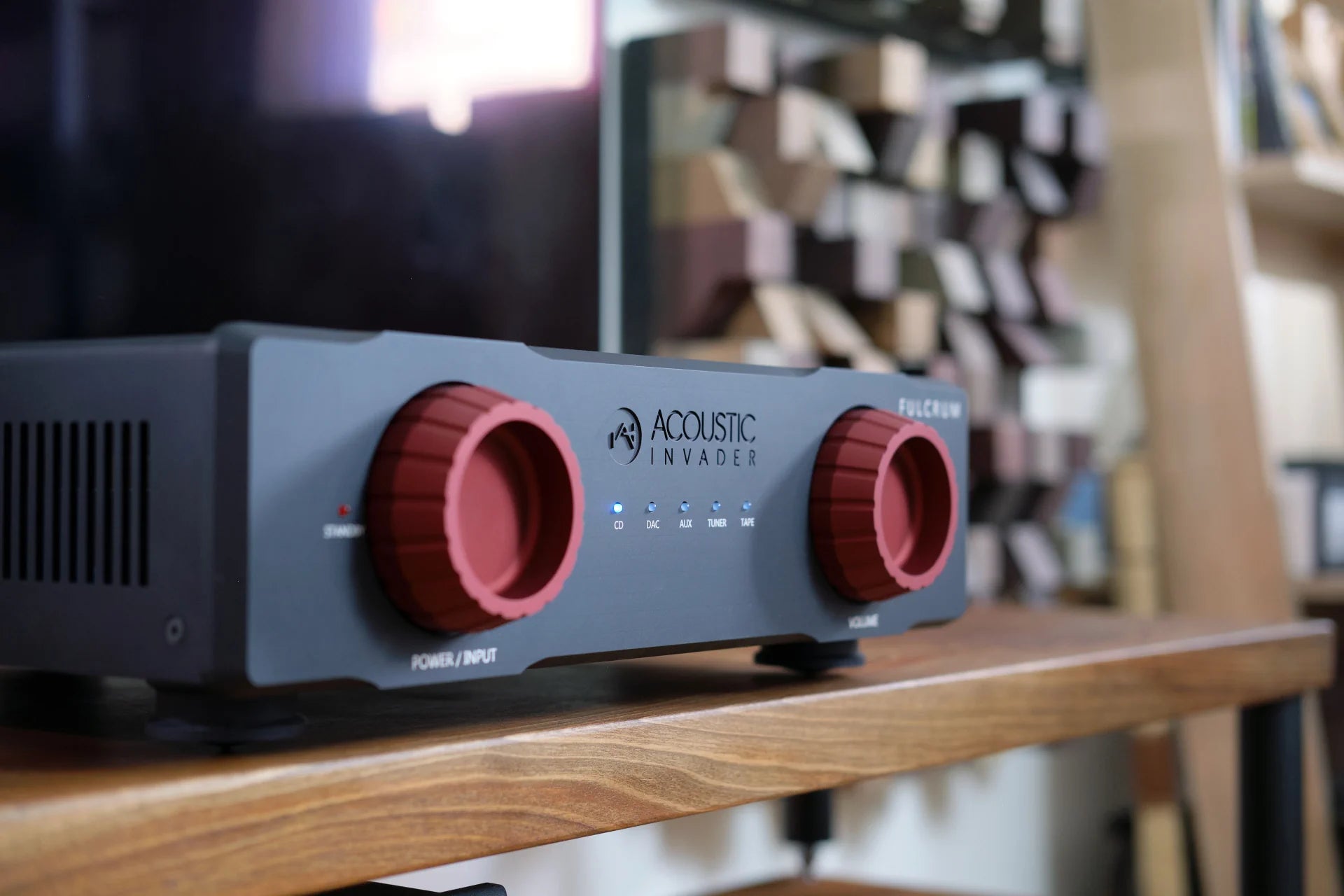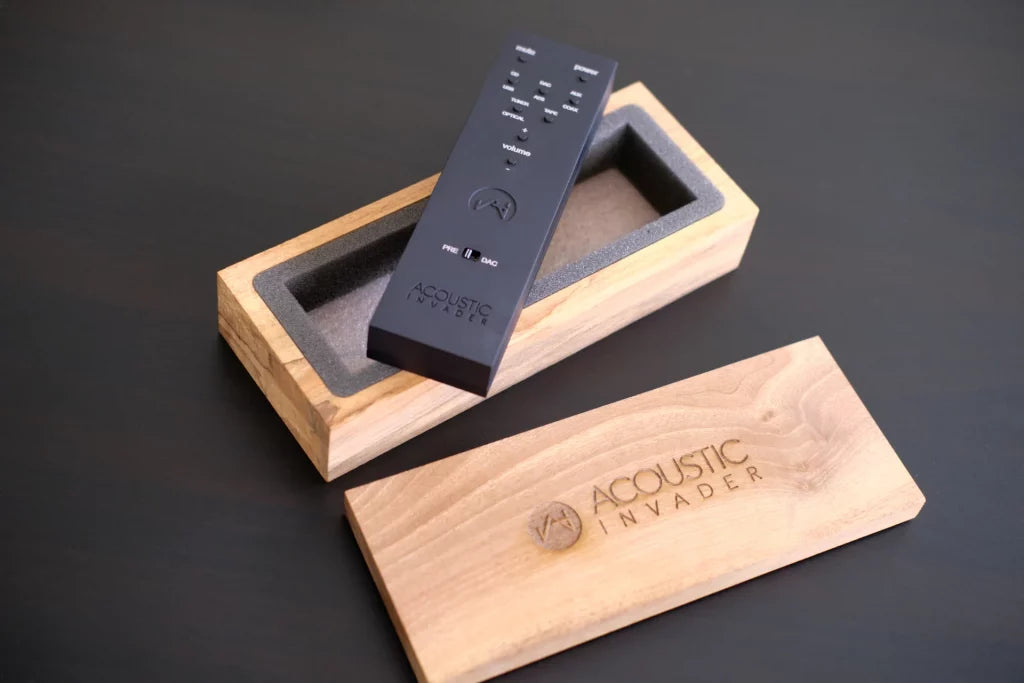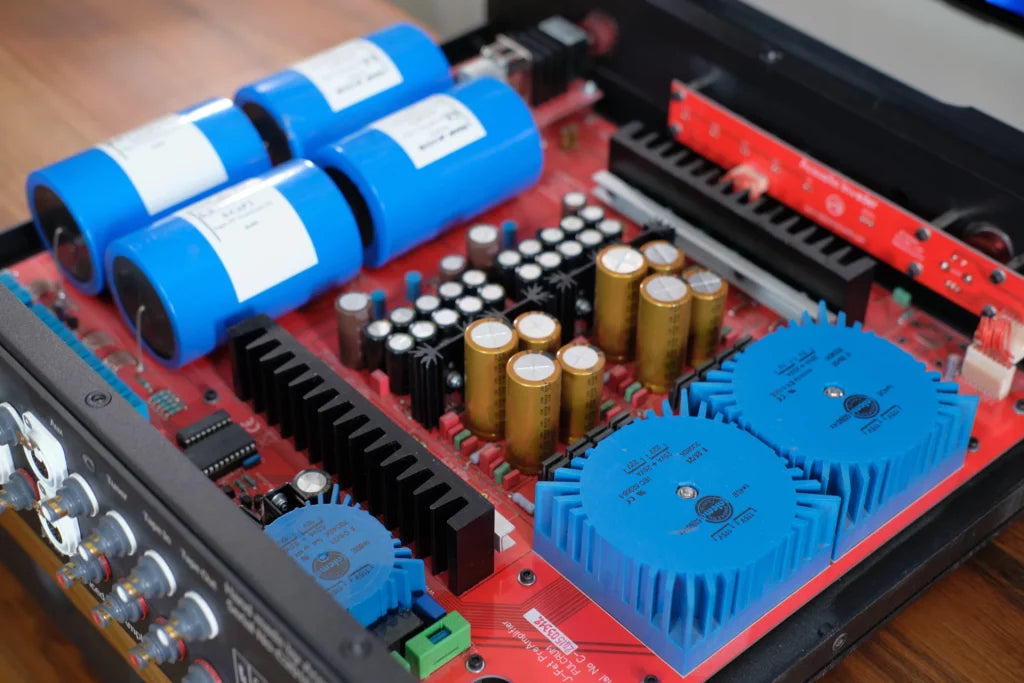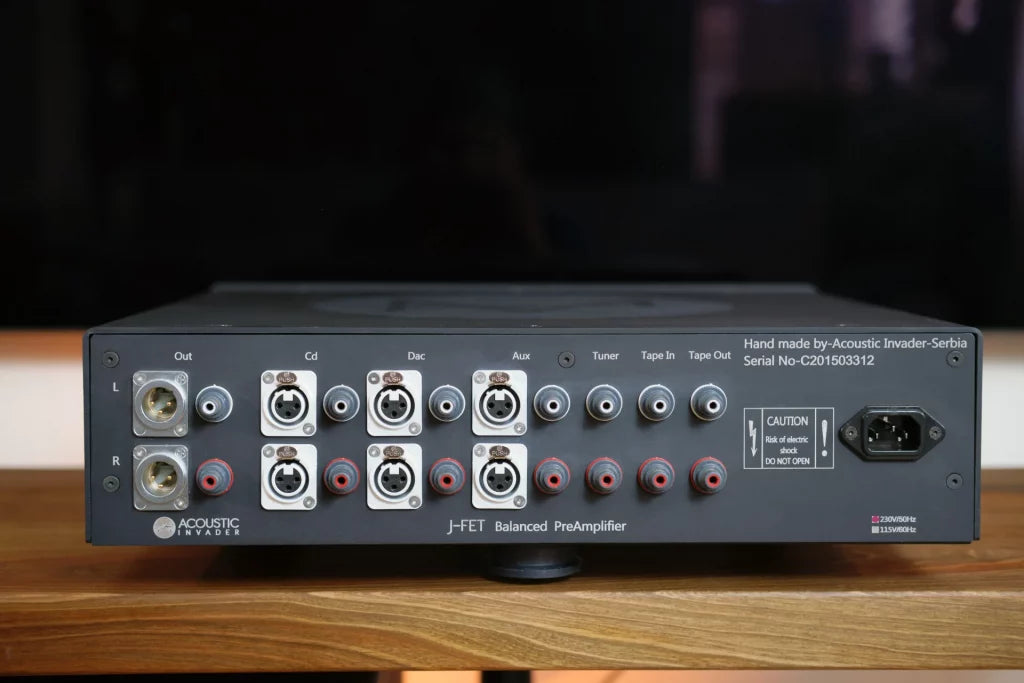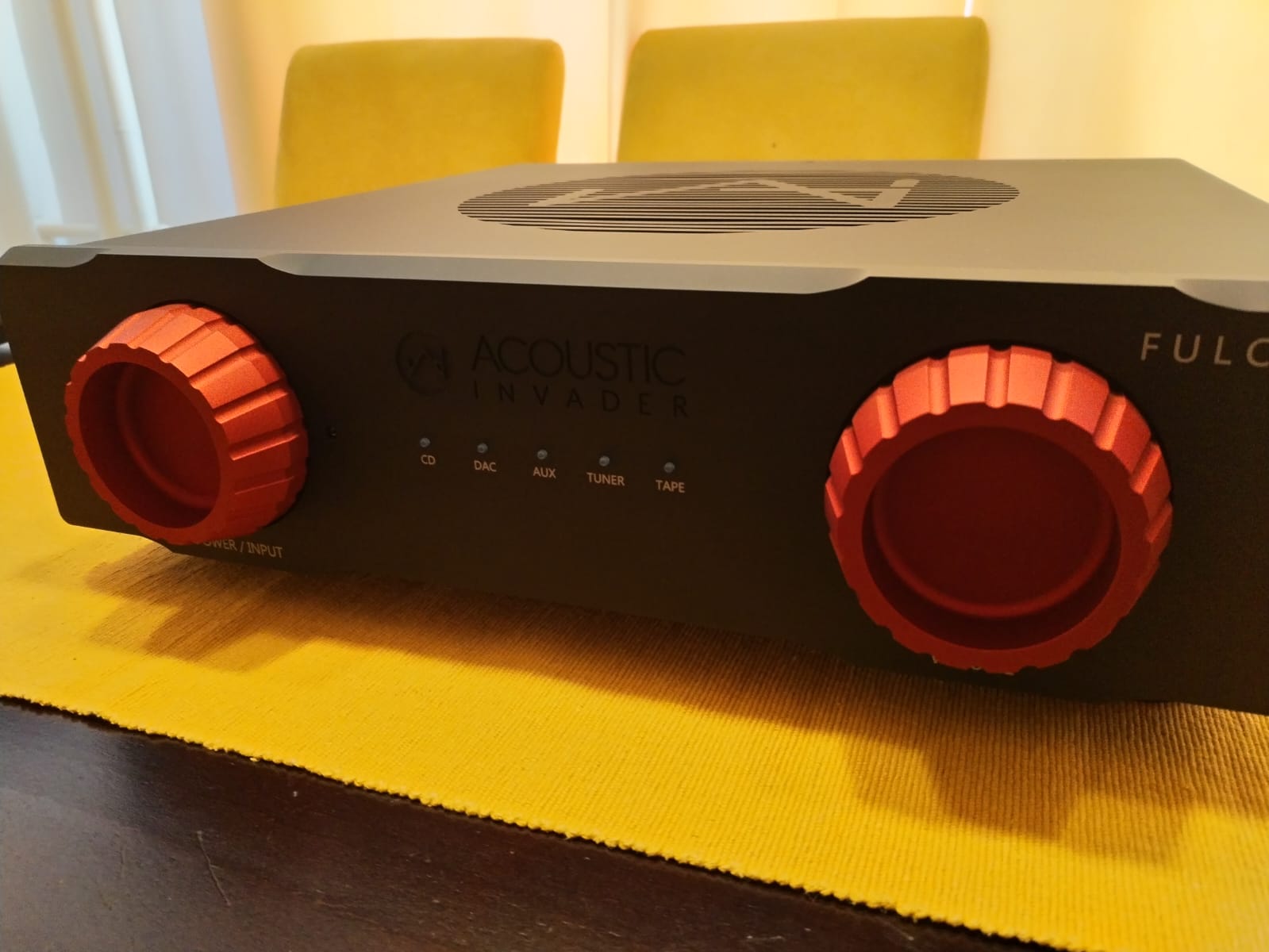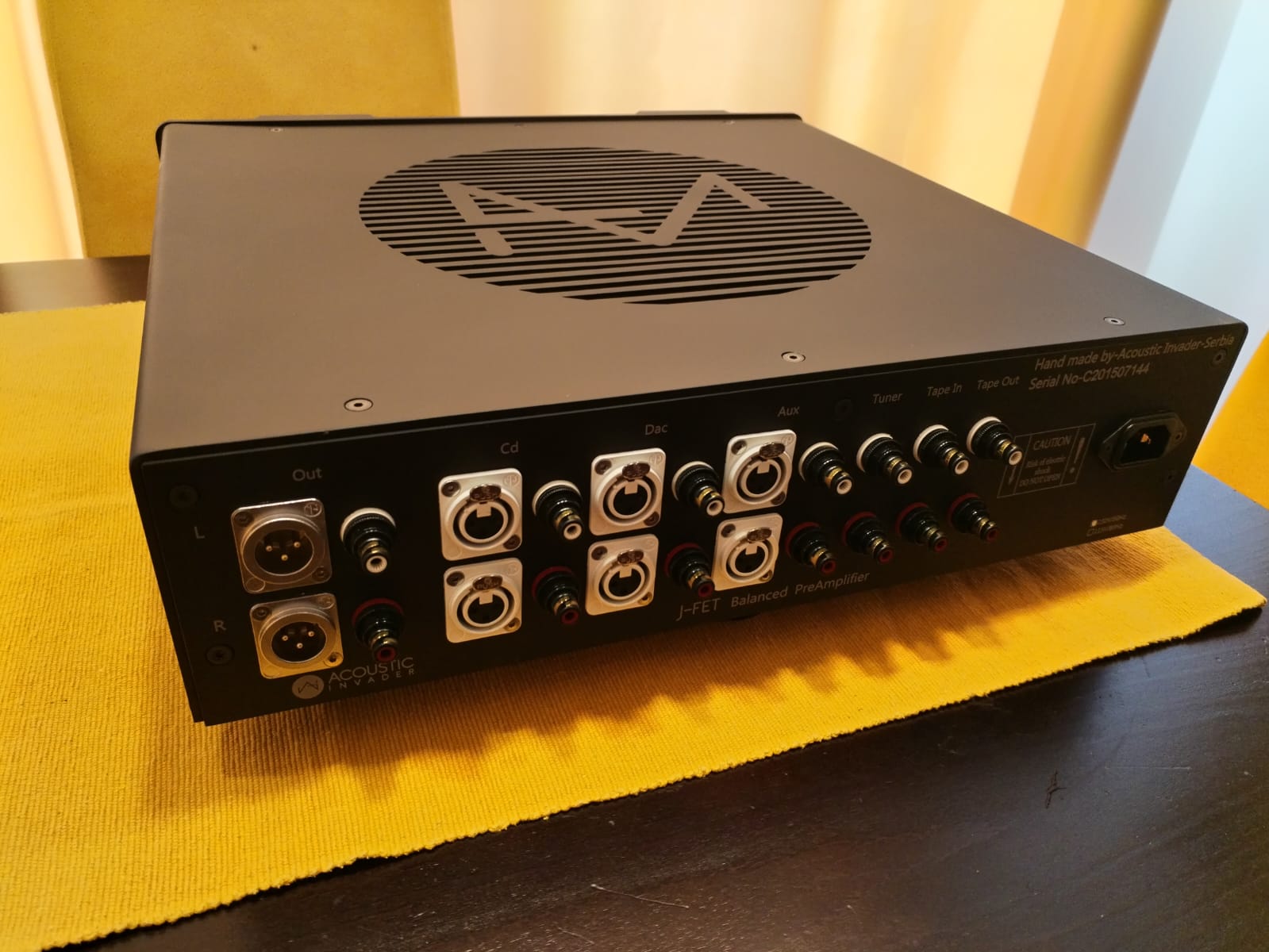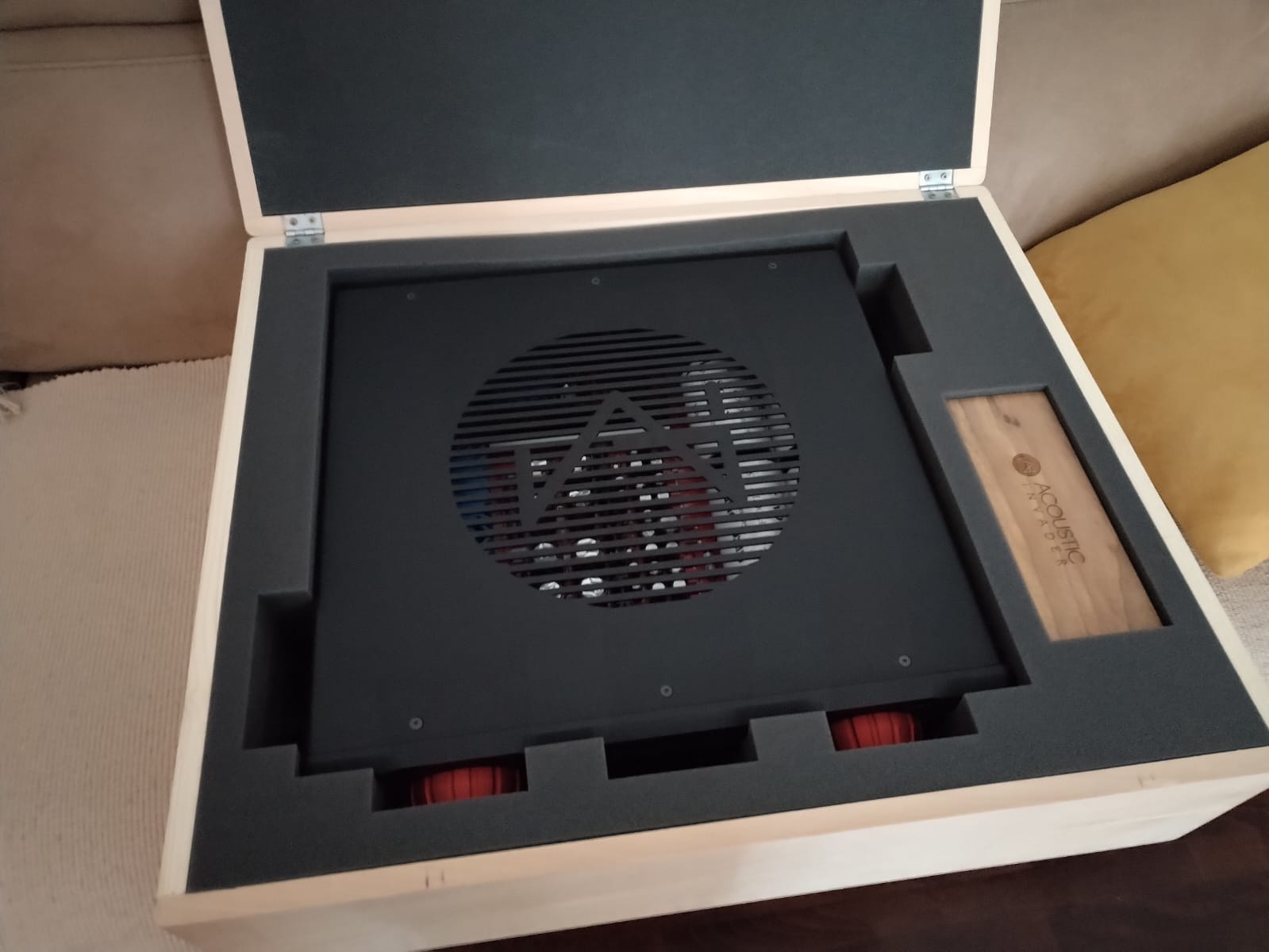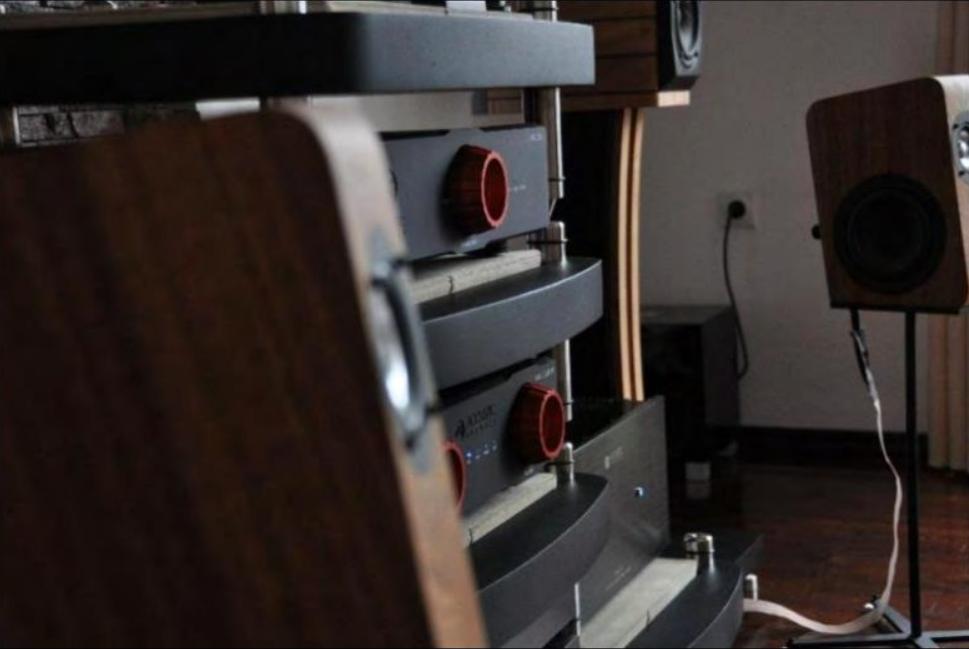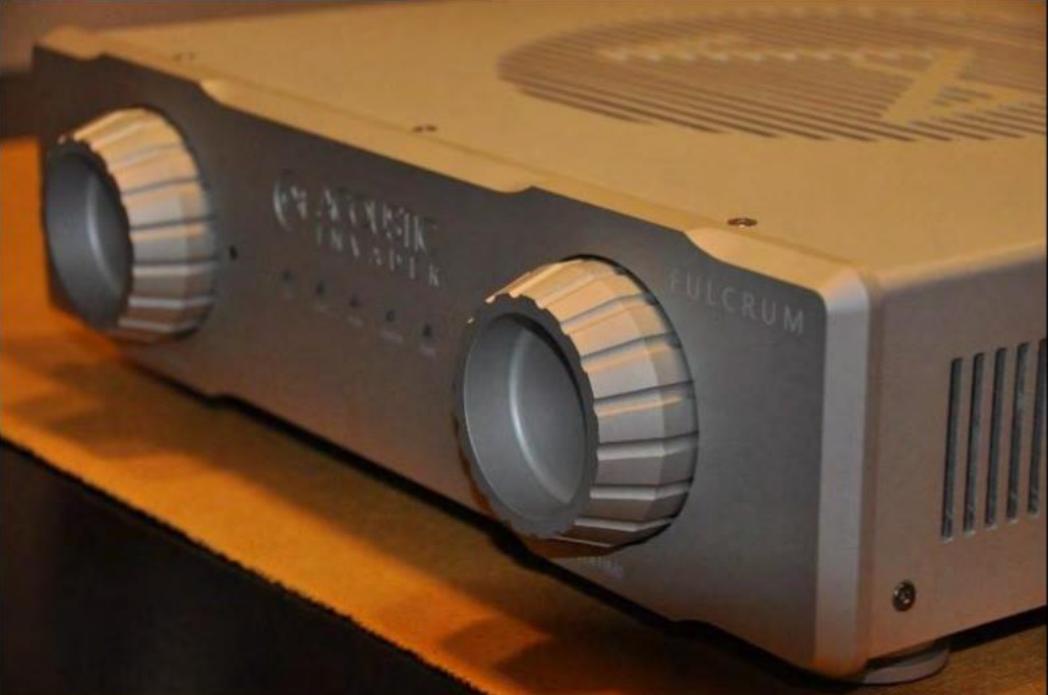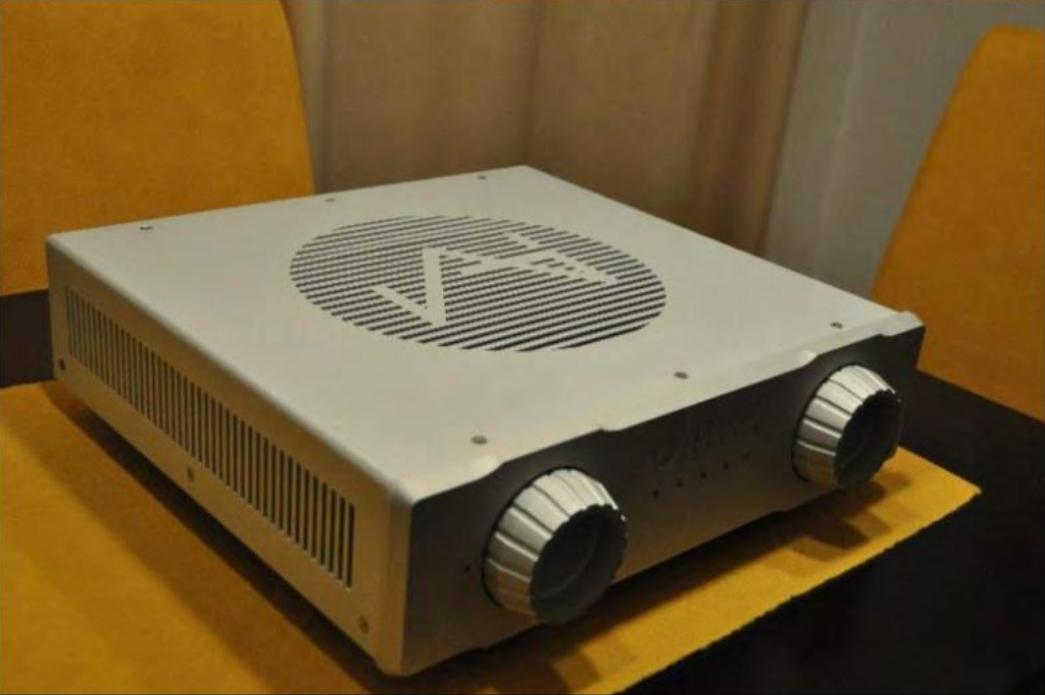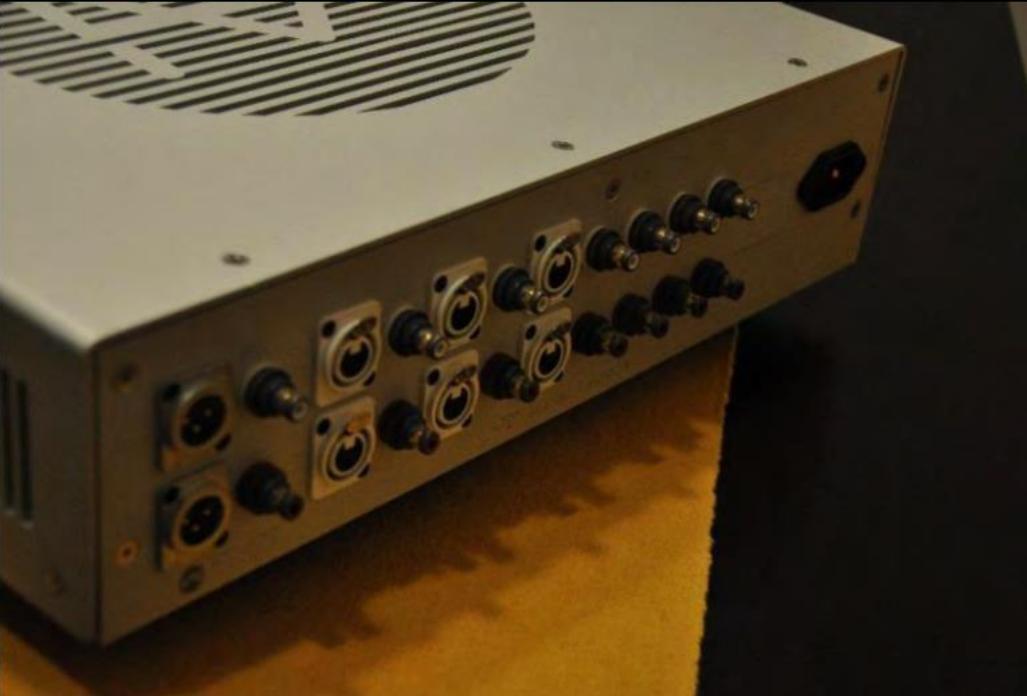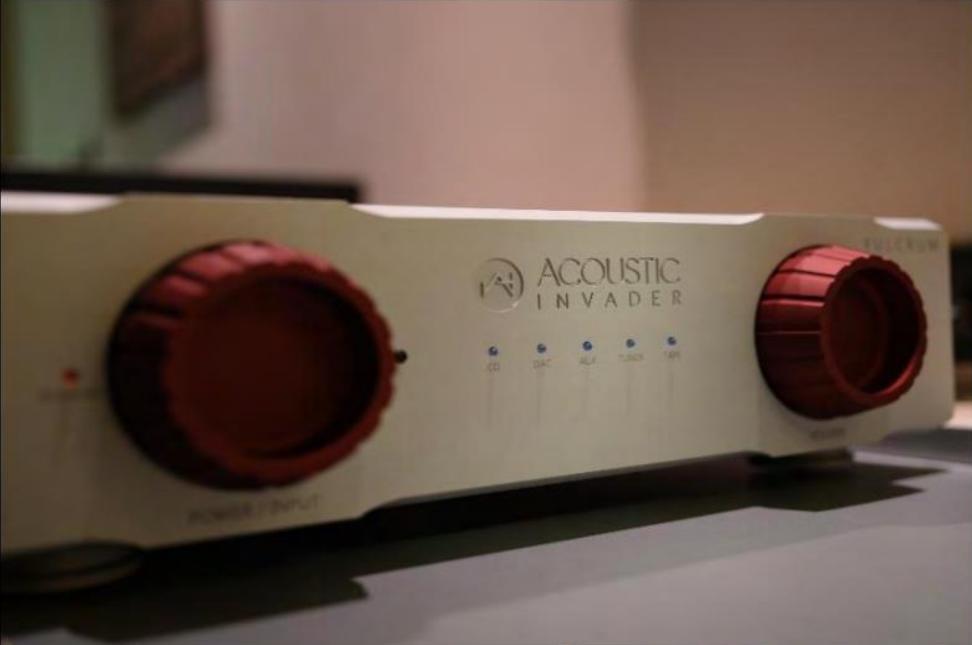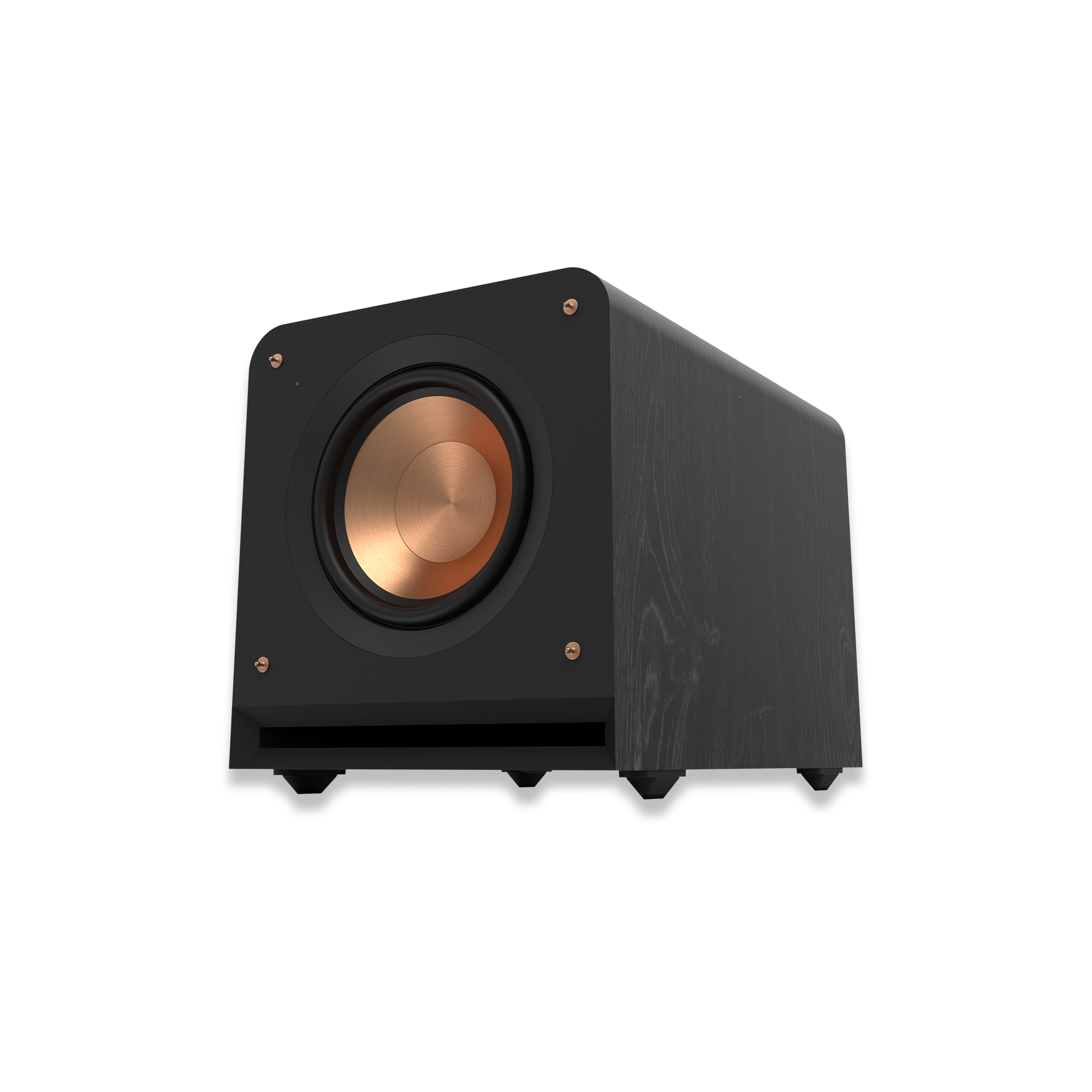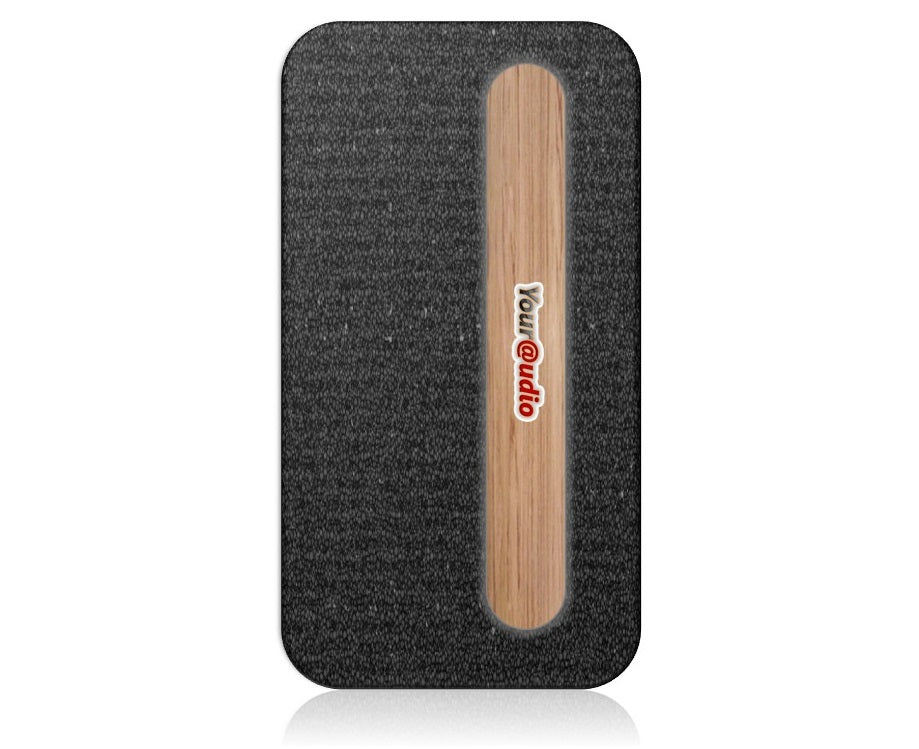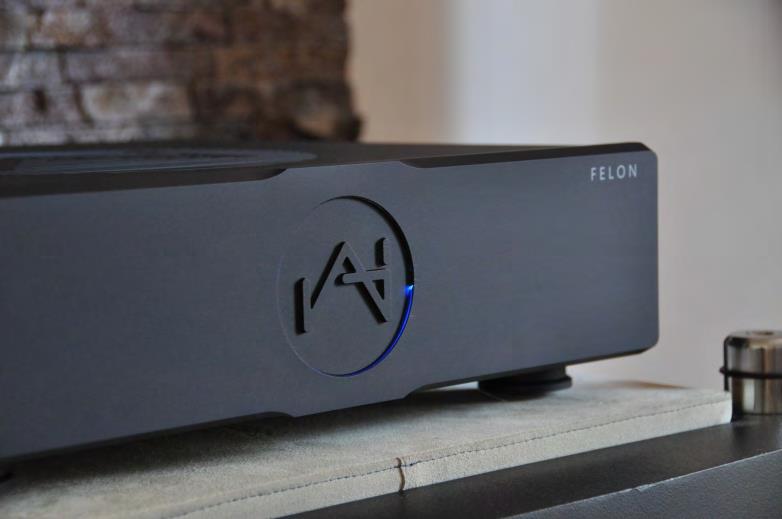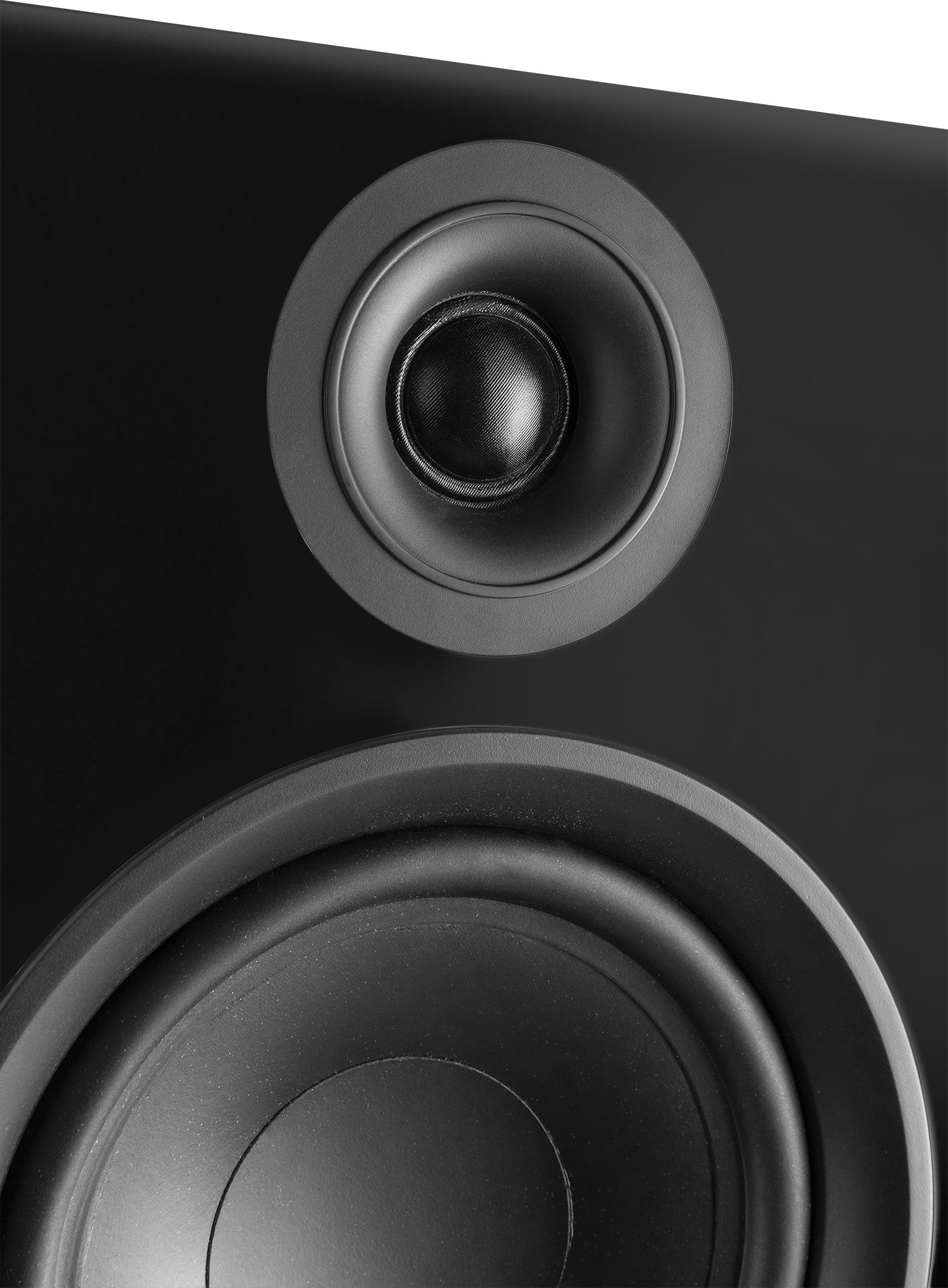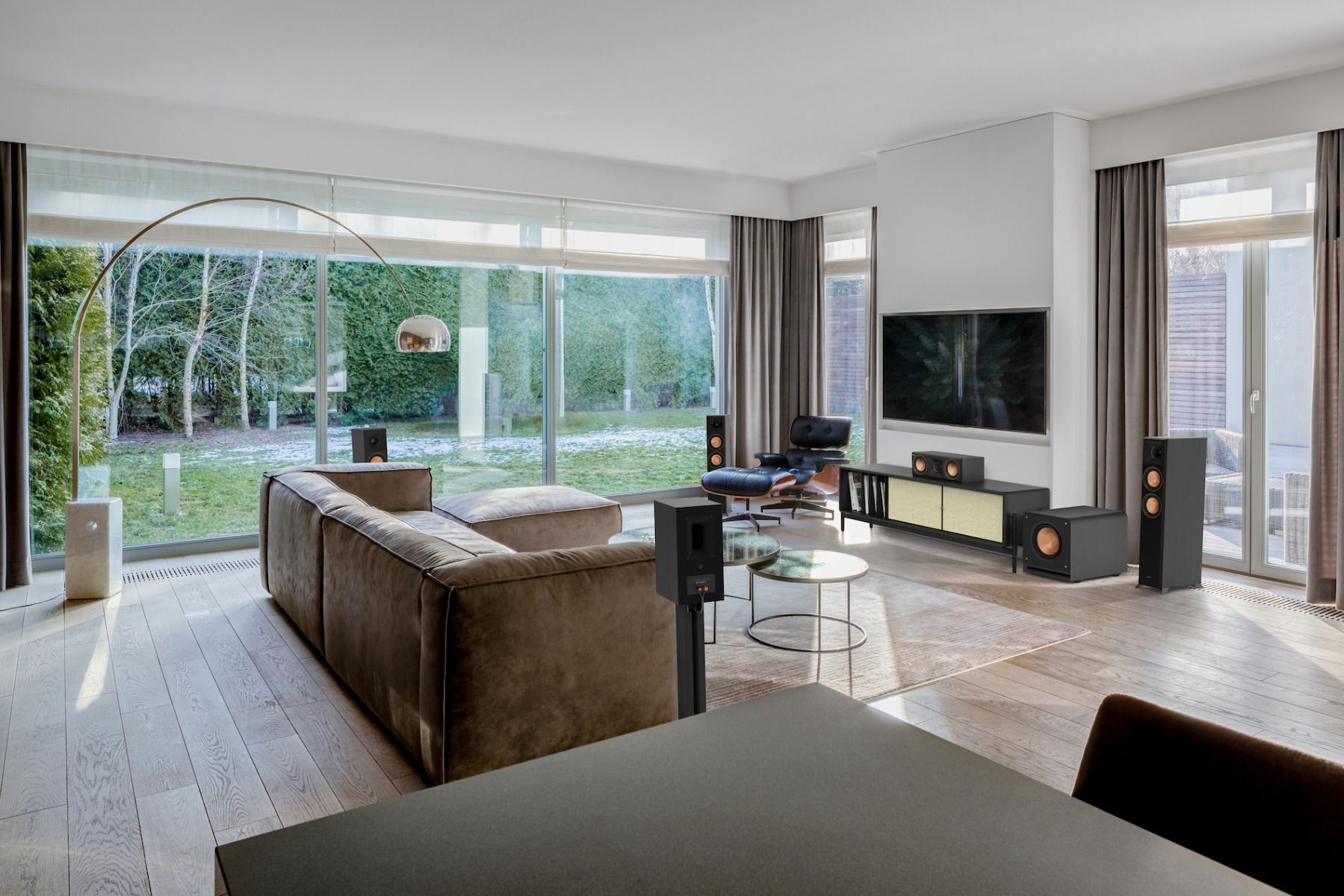Fulcrum is a premium line preamplifier of a small Serbian brand Acoustic Invader. My previous contact with the brand was through its classic preamp reviewed here. I loved it, I raved about it, I purchased it, and I kept it in my system. However, today we’re talking about a model that is four times the price. Can it be an equally good value and is it worth your consideration? Let’s find out.
Build and Connectivity
Acoustic Invader Fulcrum uses an all-metal build. The front panel is especially thick and beautifully machined aluminium. The same thing goes for the input selector and volume knob that are milled out of solid pieces of aluminium. It sure looks and feels very premium when you operate it. The volume knob is motorized and without a volume pointer – so you don’t know if it’s at 9 or 11 o’clock for example. This was a deliberate, symmetry-driven, styling choice. That annoyed me slightly at first but I got used to it quicker than expected. I just crank the volume as far as I need and don’t care about where the volume dot would be at.

A remote control is provided and it is a metal slab that has the same luxurious feel as the main unit. I love its hefty feel and its aesthetics – it uses quality. I’m only slightly off-put by its very sharp edges. While it doesn’t bother me in use, I tend to lower it on my coffee table more carefully than usual so it doesn’t scratch the tabletop. I also remove it out of sight when friends with small kids are visiting. On a positive note – you’re always in a position of a cold weapon if you ever need one to deter a burglar.


Moving to the back of the unit, we can see all the inputs. All of them are analog, no digital inputs here. Three out of five come in both balanced or single-ended choices. The output can also be either single-ended RCA or balanced XLR. One interesting thing to notice here is that XLR connectors are sourced from Neutrik and RCA connectors are low-mass ones from WBT – which are probably the best in the business, in my opinion. Similarly, the IEC inlet is sourced from IeGo, with gold-plated copper conductors. All of these are usually used as aftermarket upgrades and are not commonly found in mass-produced products.
The Inside
I don’t tend to pay much attention to the topology and technical solutions used. The final results concern me more. So I’ll be brief here and mention a few basic things about the design, and a few details that caught my attention. The preamp is based on J-FET transistors that are, as I understand it, working in class-A mode. This should bring a pleasant sound signature that reminds one of a good tube preamp while preserving the speed, dynamics, and detail retrieval of solid-state preamps.
This design is supported by a no-compromise approach. For example, there are three independent linear power supplies inside. Two are used for powering each channel, and a third one to power the rest of the electronics like volume motor, input selector, and signal LEDs. All transformers, capacitors, and other parts used in these power supplies are of a very high quality.

Great attention is given to the signal path of course. It starts from those high-quality connectors on the back and continues with Duelund wiring to the main board. A highly regarded TKD potentiometer is chosen to control the attenuation. Rike Audio S-Cap 2 aluminium foil capacitors are used in the output stage. Once again, most of these internal parts are usually seen as aftermarket parts for extreme custom upgrades.
If you are in the camp that believes all parts sound the same if they are of the correct value – then all of this might feel like a load of BS. That’s fine and I won’t try to change your mind. I’ll just say that everything going into a hi-fi device has an audible impact on its final sound if the system is good enough and you care enough to listen for it.
Sound
Acoustic Invader Fulcrum is not one of these linear, wire with gain, kind of preamps. It has character, and it has many qualities alongside it. Starting with the tonal character first – this is a warm-sounding preamp. This is especially true if we’re talking about the bassline. There’s a distinct boldness and weight of bass with Fulcrum that gives a thick and bold sound to all of your music. It’s not overcooked though, and most importantly, I never feel it’s sacrificing resolution to achieve that. The bassline is agile, it moves with grace and can reveal inner tone texture very nicely. I listen to my favorite double bassist Nenad Vasilic and his strings are recreated with admirable weight, yet filled with fine details.
Move to the midrange and there is still a trace of that boldness and warmth giving vocals a beautifully present and natural appearance. The same goes for wind instruments that, just like vocals, sound lush at all times. This lushness never translates to muddiness. Overall transparency and resolution stay very high at all times, but without any trace of edginess that might creep in with a lesser preamp. The highest frequencies are extended and revealing but with a slight laid-back twist. The whole tonal character of Fulcrum resembles a lot of a high-tier R2R DAC for example.
Soundstaging is another really strong side of Fulcrum preamp. It’s vast in all directions. Width goes beyond the borders of your speakers, and depth is equally impressive. Instruments inside of the soundstage are well separated and sound quite three-dimensional themselves. Combined with that bold and weighty tonality, we get very good physical believability of every instrument or vocal being played.




